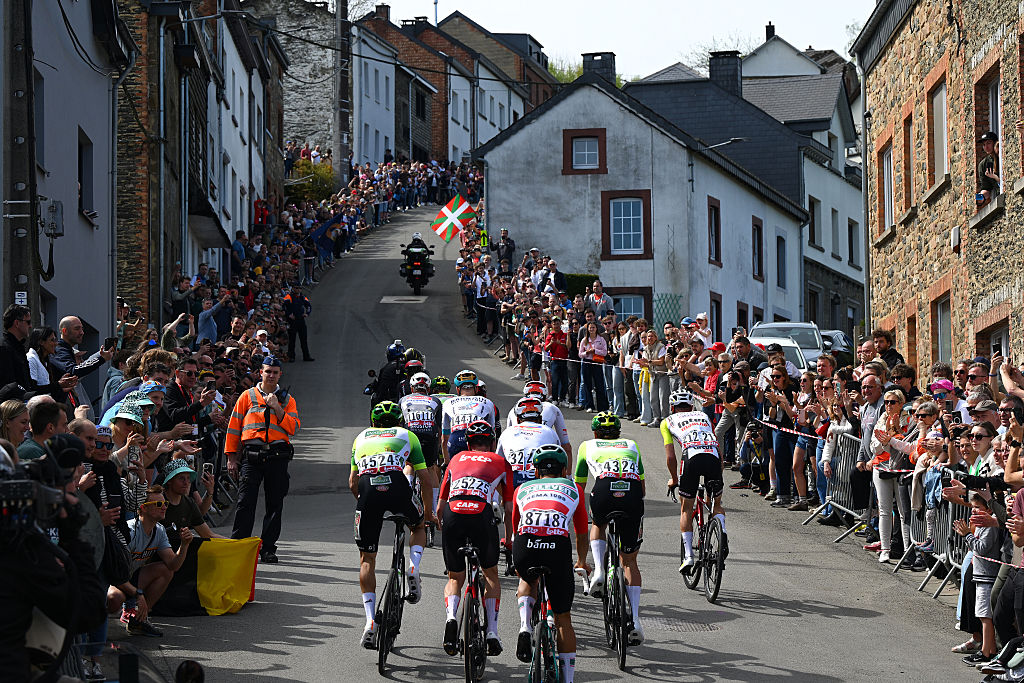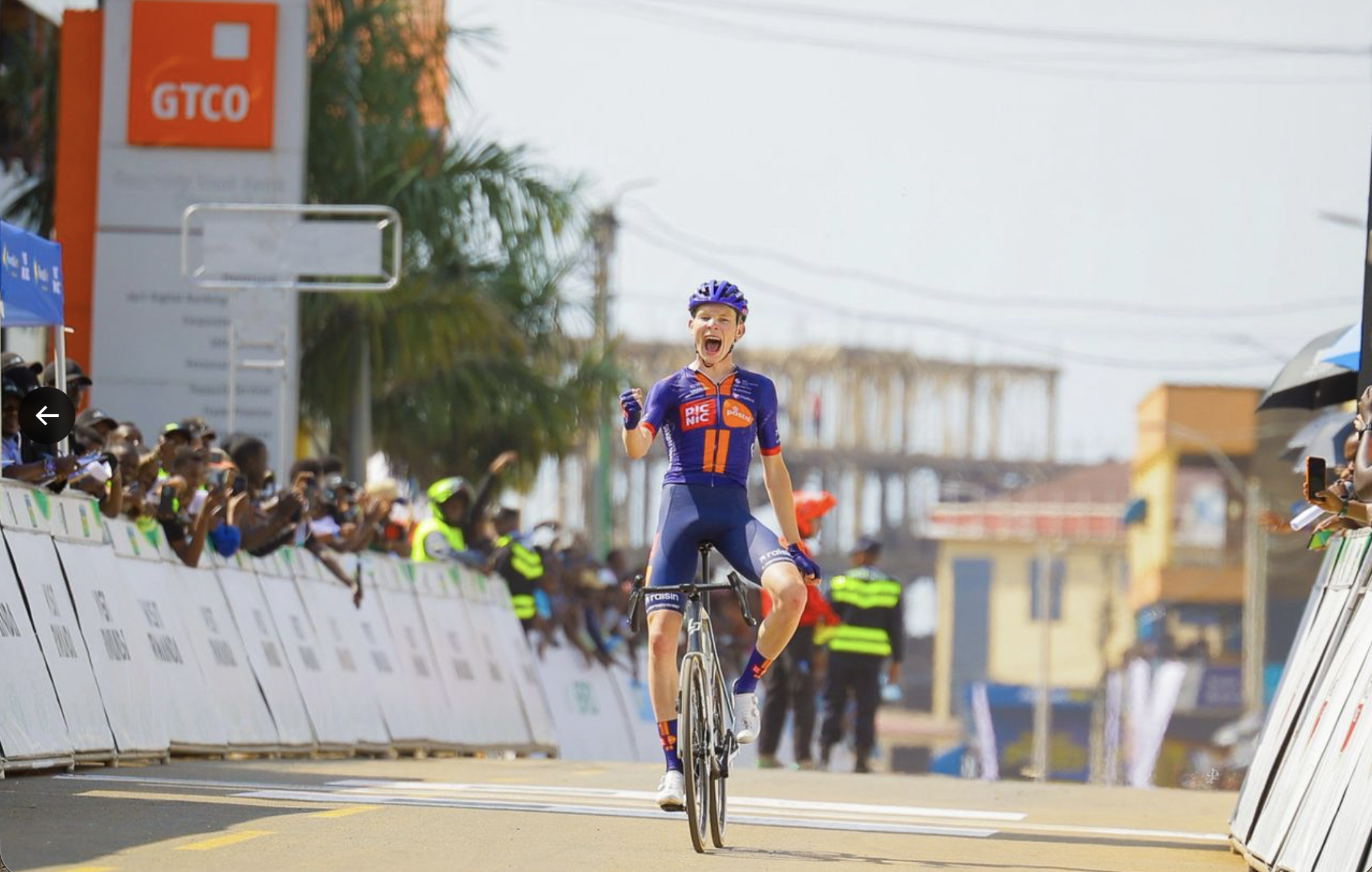'The market is both flooded and in limbo' – Uncertainty around Intermarché-Lotto merger, Arkéa-B&B Hotels' future mucking up transfer works
Over 400 riders and staff still waiting for answers as end of season nears

The latest race content, interviews, features, reviews and expert buying guides, direct to your inbox!
You are now subscribed
Your newsletter sign-up was successful
The 2025-2026 pro cycling transfer season has been one of the most protracted in recent history, as the futures of at least three major teams are still up in the air, and October 1 marks the UCI's deadline for teams to deposit their bank guarantee for the coming season.
Since news emerged in July about a proposed merger between Intermaeché-Wanty and Lotto, there has been little to no information about when and if the deal would be final.
With no title sponsor and dwindling prospects for a replacement, and relegation from the WorldTour a certainty, the future of Arkéa-B&B Hotels is fading fast.
"On October 1, if I have nothing, everything will stop," manager Emmanuel Hubert said to L'Équipe.
The riders and staff of Arkéa-B&B Hotels have been free to sign elsewhere for months, with Hubert being open about the difficult search for new backers. With the deadline passing today, it's not looking good for the French team.
With the team likely folding, that would leave 20 WorldTour riders (six have signed elsewhere, one has retired), 12 from the women's team (one signed), and 12 riders from the development squad looking for new teams.
There are also 95 individuals from the staff looking for new jobs.
The latest race content, interviews, features, reviews and expert buying guides, direct to your inbox!
The merger of Intermaché-Wanty and Lotto is also another unsettled situation slowing down agents finalising deals for riders.
The plan not involves Intermarché's WorldTour team, it affects their development team, Wanty-Nippo Re-Uz, and the Charles Liegeois cyclocross outfit. Lotto has a development team and a women's Continental team for a total of 114 riders and 156 staff.
According to several registered pro cycling agents who preferred to remain anonymous, these two factors have made for an abnormal year for the transfer market.
Riders contracted to the teams are keeping their options open, while teams are still holding open positions while awaiting finalisation of the merger and the likely end of Arkéa, ready to scoop up the best riders at a bargain.
"Every other team is waiting to see what shakes out," one agent told Cyclingnews. "The market is both flooded and in limbo. That uncertainty cascades to other teams who are waiting to see what happens as they want a deal."
With the Intermarché-Lotto situation, the UCI only allows for a maximum of 30 riders on a WorldTour team. There are at least 18 riders under contract still with Intermarché and 14 with Lotto, so that is already two more than could be allowed.
The teams could pay out the excess riders' contracts, but they still would have to find a job, another agent explained.
"Riders could be flooding the market, maybe with money in their pockets, but without a team with whom they can perform. The money could facilitate a move, but that puts pressure on the entire system," because a rider coming in with a payout makes them more attractive than another rider who might demand a higher salary.
The uncertainty has hit younger riders and domestiques harder because the UCI's points-scoring and promotion/relegation systems demand that riders get results.
That has shifted the entire foundation of pro cycling as a team sport because domestiques are both valuable and expendable. They are absolutely required for superstars like Tadej Pogačar to get results, but there are few ways for domestiques to distinguish themselves unless they're a rider like Sepp Kuss, who could be a Grand Tour leader if he wanted to but chooses not to.
Teams aren't under obligation to fill their rosters to the maximum, so there are no guarantees there are enough spaces left for riders who stand to end up unemployed.
Even in a normal year, like last season, the annual game of musical chairs leaves dozens of riders standing when the song stops.
Of the men's 2025 WorldTour and top six ProTeams, 518 were on the same team the previous year, 198 changed teams after 2024, and 45 riders retired. Meanwhile, 50 riders dropped down to a lower level team.
Some of those riders who left the WorldTour did so by choice, like Tom Pidcock moving from Ineos to Q36.5. Others had to take jobs with Continental teams or even amateur outfits just to keep racing.
Since pro cycling's salary figures are shrouded in secrecy, we won't know how many riders are underemployed – having had to take a pay cut just to have a team.
The delays on finalising the merger and announcing the end for Arkéa and uncertainty only weaken riders' bargaining positions.
"If you have the patience, if you wait until the absolute last minute, [a team] could call the rider or the agent and say, 'We have a spot for you, but we don't have the budget. Can he come for the minimum [salary]?' – even though he was making €150,000 last year. It's dog-eat-dog."

Laura Weislo is a Cyclingnews veteran of 20 years. Having joined in 2006, Laura extensively covered the Operacion Puerto doping scandal, the years-long conflict between the UCI and the Tour de France organisers ASO over the creation of the WorldTour, and the downfall of Lance Armstrong and his lifetime ban for doping. As Managing Editor, Laura coordinates coverage for North American events and global news.
You must confirm your public display name before commenting
Please logout and then login again, you will then be prompted to enter your display name.
